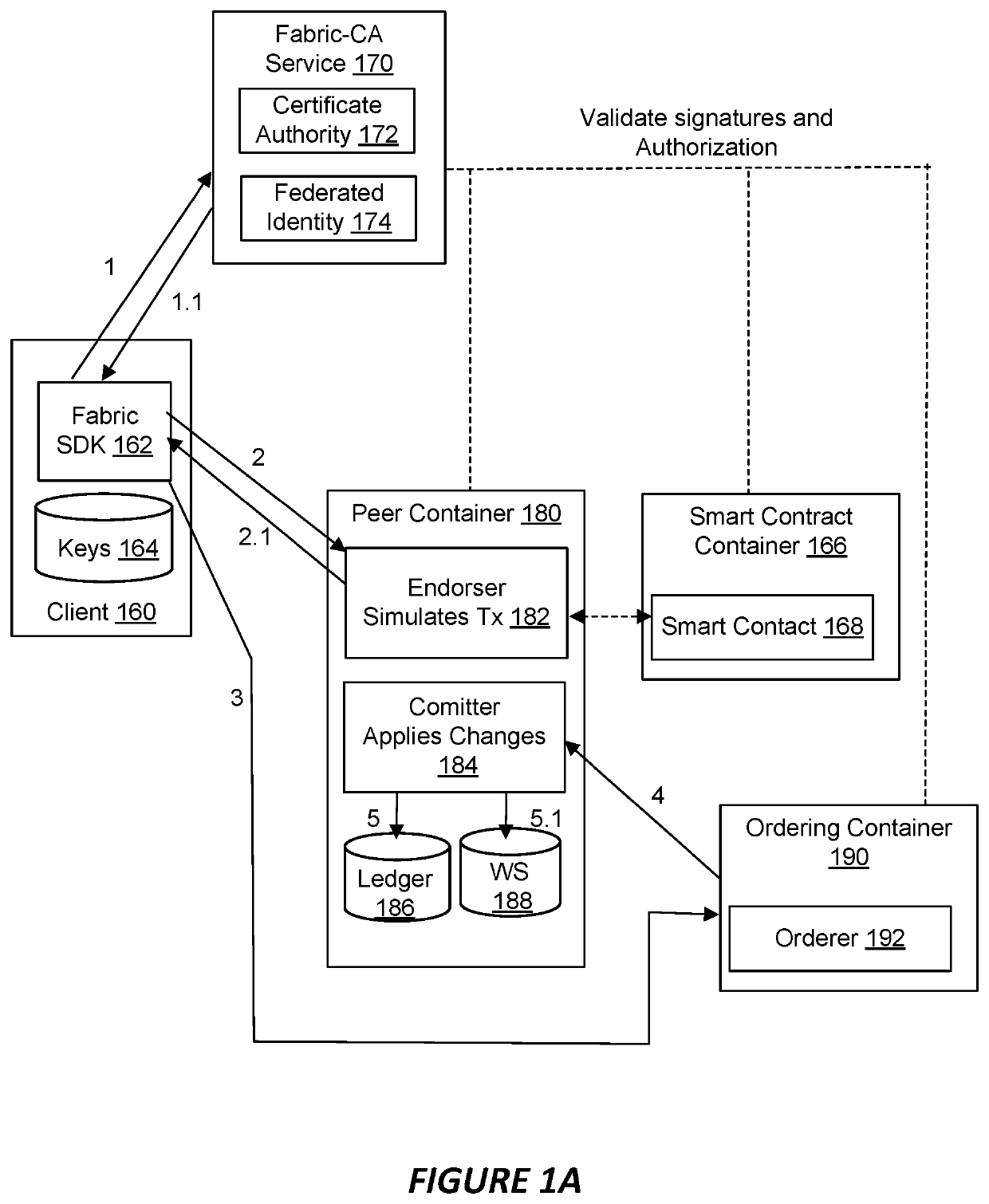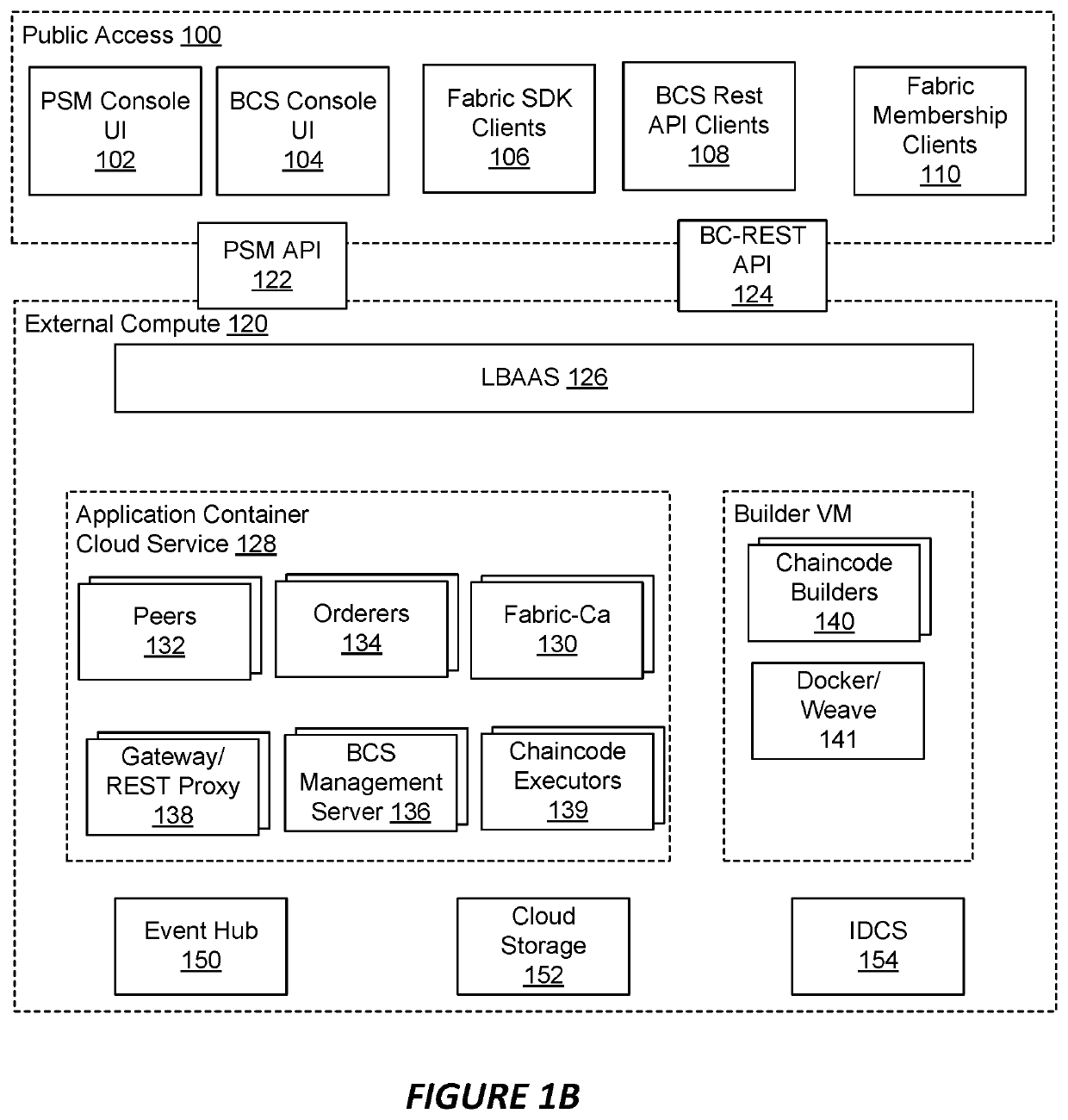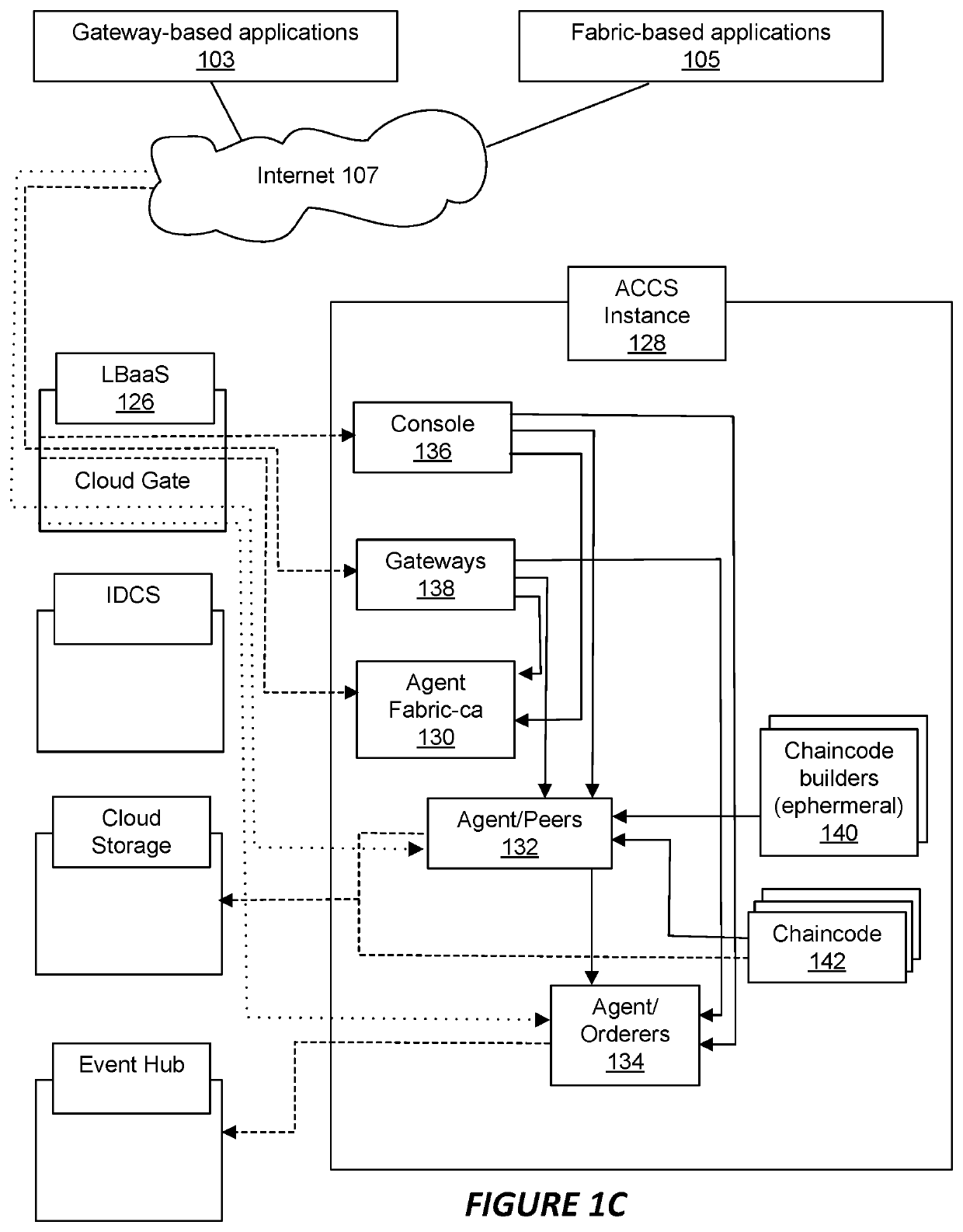Dag based methods and systems of transaction processing in a distributed ledger
a distributed ledger and transaction processing technology, applied in the direction of database distribution/replication, digital transmission, securing communication, etc., can solve the problems of increasing complexity, unable to be repudiated, and likely the cost of the transaction, so as to reduce the cost, time and risk, and increase the effect of trus
- Summary
- Abstract
- Description
- Claims
- Application Information
AI Technical Summary
Benefits of technology
Problems solved by technology
Method used
Image
Examples
Embodiment Construction
[0034]In accordance with an embodiment, described herein are systems and methods for supporting SQL-based rich queries in a blockchain fabric. In accordance with an embodiment, the systems and methods provided herein provide the ability to execute SQL queries to allow for the creation of complex smart contracts much easier and more maintainable manner. Also, performance is improved both by pushing the data filtering back to the storage engine (rather than happening at the smart contract level), and by being able to rely on relational engines which support concurrent read and write data access. As well, the state of the world database can also provide for concurrent read / write access.
[0035]In accordance with an embodiment, an example blockchain fabric that supports SQL-based rich queries in a blockchain fabric can be provided as a cloud service. In accordance with an embodiment, the enterprise-grade framework includes scalability, management, configuration, persistence, and compatibi...
PUM
 Login to View More
Login to View More Abstract
Description
Claims
Application Information
 Login to View More
Login to View More - R&D
- Intellectual Property
- Life Sciences
- Materials
- Tech Scout
- Unparalleled Data Quality
- Higher Quality Content
- 60% Fewer Hallucinations
Browse by: Latest US Patents, China's latest patents, Technical Efficacy Thesaurus, Application Domain, Technology Topic, Popular Technical Reports.
© 2025 PatSnap. All rights reserved.Legal|Privacy policy|Modern Slavery Act Transparency Statement|Sitemap|About US| Contact US: help@patsnap.com



